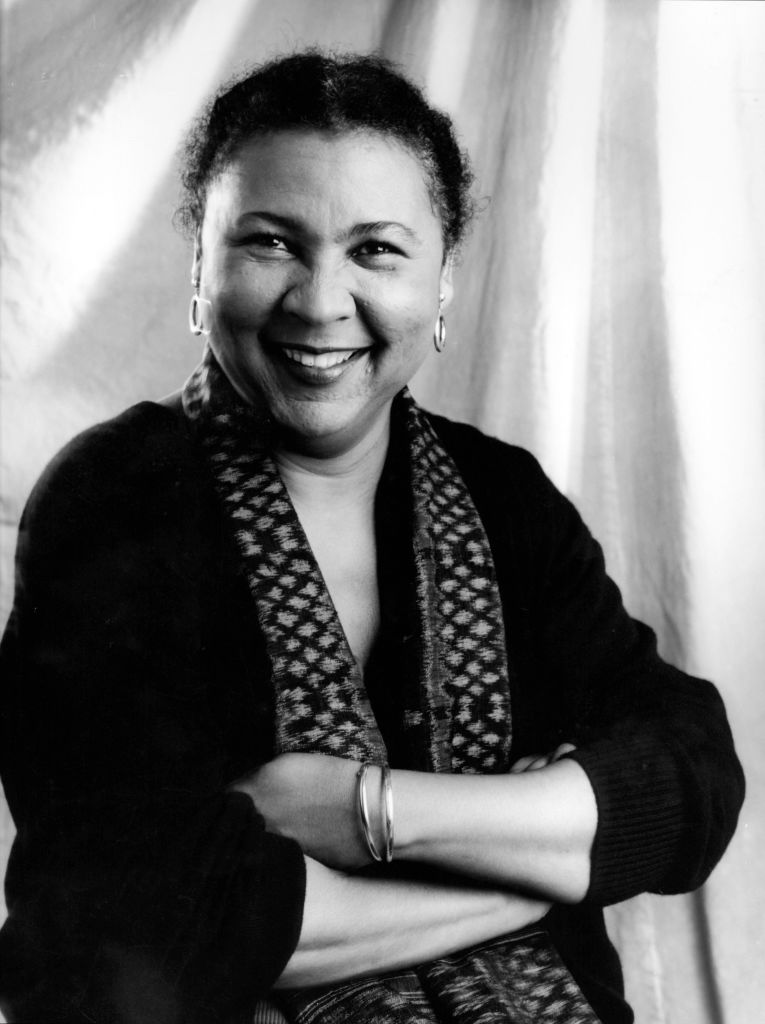Welcome & Dedication 2022
Return to Love: Honoring the Legacy of bell hooks

Dear Colleagues,
“The academy is not paradise…” This statement by bell hooks always felt peculiar. Does anyone ever enter the academy in search of paradise? Especially as women of color in the academy, we are all too aware that the institutions we work in can be the exact opposite of paradise. This past year some of those challenges were emblematized by high-profile controversies such as the tenure denial of Nikole Hannah-Jones by UNC Chapel Hill. As Hannah-Jones noted in a public statement, “It is not my job to heal the University of North Carolina.” Indeed, many of us are often called upon to heal the colleges and universities for which we work. An expectation to experience paradise is not generally what people in higher education search for.
And yet, time and time again we have managed to create, curate, and cultivate our own forms of paradise, in community, in the classroom, and in coalitions. Women of Color in the Academy (WOCIA) represents one such paradise where women can come together to learn, share, think, grow, network, and strategize. How might we, in the legacy of hooks, attempt to create more opportunities for paradise within the academy?
With this year’s theme, “Return to Love: Honoring the Legacy of bell hooks,” we hope both to create the kind of paradise that hooks herself imagined, and to consider how to extend the legacy of her far-reaching impacts within the academy. A prolific writer, engaged teacher, and bold feminist thinker, bell hooks addressed a wide range of topics in her scholarship, teaching, and social action. hooks’ insistence on claiming her positionality within the academy is critically insightful and helpful for us to hold onto as women of color in the academy.
Recalling her legacy, Black feminist scholar Noliwe Rooks writes, “Because of bell hooks, we know we can bring our whole selves to our work. We can trust and believe in our intellect. We can be complicated in our humanity. We can be gentle with our critiques. We can be fierce in our protection. We can keep talking to, and talking with, and talking back, until the last breath.” In the bell hooks spirit of “bringing our whole selves to our work,” this year’s WOCIA theme is intended to highlight a topic that hooks held dear as well as to reflect on what her legacy means to all women of color in the academy regardless of school, location, discipline, language, class, race, or ethnicity.
“Return to Love” far more than just romantic love—the call to love as hooks saw it is about self-love, love of sisterhood, love of others, love of teaching, love as an ethic, and much more.
If the tenor of the United States has shown us anything in the past few years, it is that we could all use more love. Love of self, love of others, love for our neighbors, our students, and colleagues. We invite you to enjoy today’s program which celebrates hooks’ dialectic of love, and in so doing, we hope that you experience a kind of paradise.
Sincerely,
Régine Jean-Charles and Toyoko Orimoto
2022 Women of Color in the Academy Conference Co-Chairs



Raised in segregated Kentucky, bell hooks was the daughter of a janitor and a maid. An avid reader, with poets Gwendolyn Brooks and Elizabeth Barrett Browning among her favorites, hooks was motivated to seek higher education and explore the realm of learning, which she would later describe as “the practice of freedom” and “a place where paradise can be created.”
She earned a B.A. from Stanford University, an M.A. from the University of Wisconsin – Madison, and a Ph.D. from the University of California – Santa Cruz in English literature. As a faculty member, she taught at multiple colleges and visited universities across the country. Some universities where she lectured include the University of Southern California, University of California – Santa Cruz, San Francisco State University, Yale, Oberlin College, and the City College of New York. Ultimately, she returned to Kentucky in 2004 to become a Distinguished Professor in Residence at Berea College.
A prolific writer, hooks authored over 40 books, including five children’s illustration books and numerous poems about race and feminism. She pioneered the concept of intersectionality in feminism. Her work has had a profound impact on the teaching of feminism in the academy, showing that the goal of gender equity cannot be achieved without fully and honestly addressing race and sexuality. Her 1981 book, Ain’t I A Woman: Black Women and Feminism, has become a staple on college syllabi. She was a thought leader, a brilliant scholar, and an academic who used her pen to challenge society to be our better selves. A recurring theme in her work is the beauty of women of color and the value of our voices. Today we honor the memory of a sister whose ideas live on with us.
*We use lowercase letters to respect her own usage.
